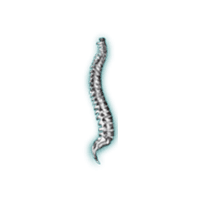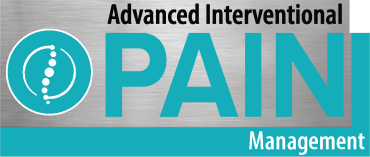
Advanced Interventional Pain Management
Interventional Pain Management Specialists located in Hot Springs, AR & Little Rock, AR
Over 20 million people in the United States live with the pain and other symptoms of neuropathy. At Advanced Interventional Pain Management, with offices in Hot Springs, Little Rock, Texarkana, El Dorado, Arkadelphia, and Mena, Arkansas, pain management specialists Jacob Abraham, MD, and Ryan Stuckey, MD, offer comprehensive care for neuropathy. They provide in-office treatments like minimally invasive radiofrequency neurotomy to relieve neuropathy symptoms and restore your quality of life. To learn more about available neuropathy treatments, call the office nearest you or book an appointment online today.
Neuropathy Q & A
What is neuropathy?
Neuropathy is a pain condition that results from damage to your peripheral nervous system, the nerves that supply sensations to your body outside of your brain and spinal cord.
When one or more nerves have damage, it can result in episodes of pain in the affected areas, as well as tingling and numbness that radiate into your legs, arms, feet, and hands.
Diabetes is a leading cause of neuropathy as uncontrolled, high blood sugar levels can lead to permanent nerve damage. You may also be at risk for neuropathy if you experience trauma to your body from a fall, auto accident, or another type of injury.
What are the symptoms of neuropathy?
Symptoms of neuropathy depend on which area of your peripheral nervous system has damage.
Sensory nerve damage
Your sensory nerves carry messages from your brain that affect your sense of smell, sight, hearing, touch, and taste. Damage can cause tingling, numbness, and a stabbing or burning pain that radiates into your arms and legs.
Motor nerve damage
Your motor nerves carry messages from your brain to your muscles. Damage to the motor nerves can lead to muscle weakness, cramping, and twitching, or loss of muscle control and coordination.
Autonomic nerve damage
Autonomic nerves affect unconscious body functions, like breathing, digestion, heart rate, and blood pressure. Damage to these nerves can cause excessive sweating, loss of bladder control, low blood pressure, and sexual dysfunction.
How is neuropathy treated?
After confirming neuropathy through a physical exam and a review of your medical history, Dr. Abraham or Dr. Stuckey customizes a treatment plan that focuses on relieving your pain and preventing a worsening of your condition.
Medications are available to reduce pain and make it easier for you to participate in physical therapy. If these therapies aren’t enough to relieve pain and other symptoms of neuropathy, your doctor may recommend radiofrequency neurotomy.
Radiofrequency neurotomy, also known as rhizotomy, is a minimally invasive procedure that uses radiofrequency energy to destroy damaged nerves. This disrupts pain signals that travel from the nerve to the brain to provide you with long-term symptom relief.
You may also be a candidate for spinal cord stimulation, a treatment that uses an implanted device to deliver low-level currents of energy to nerves in your spine.
This energy interferes with the transmission of pain signals from your nerves to your brain. You can control the energy delivery yourself through an external remote to relieve pain as needed.
If your quality of life is low because of chronic neuropathy pain, call the Advanced Interventional Pain Management office nearest you or request an appointment online today.
